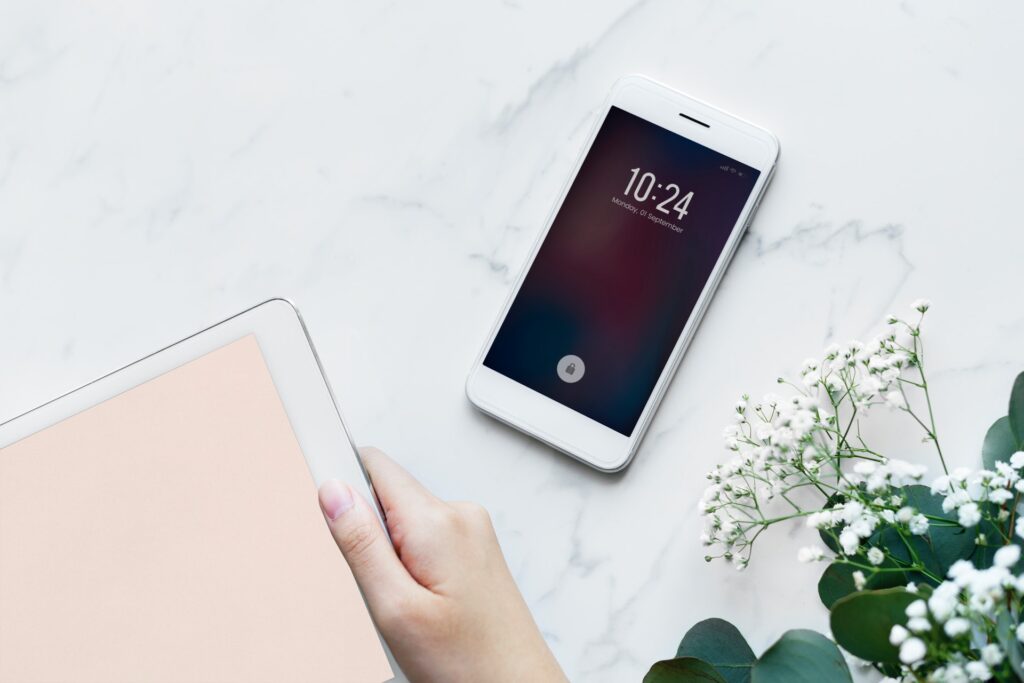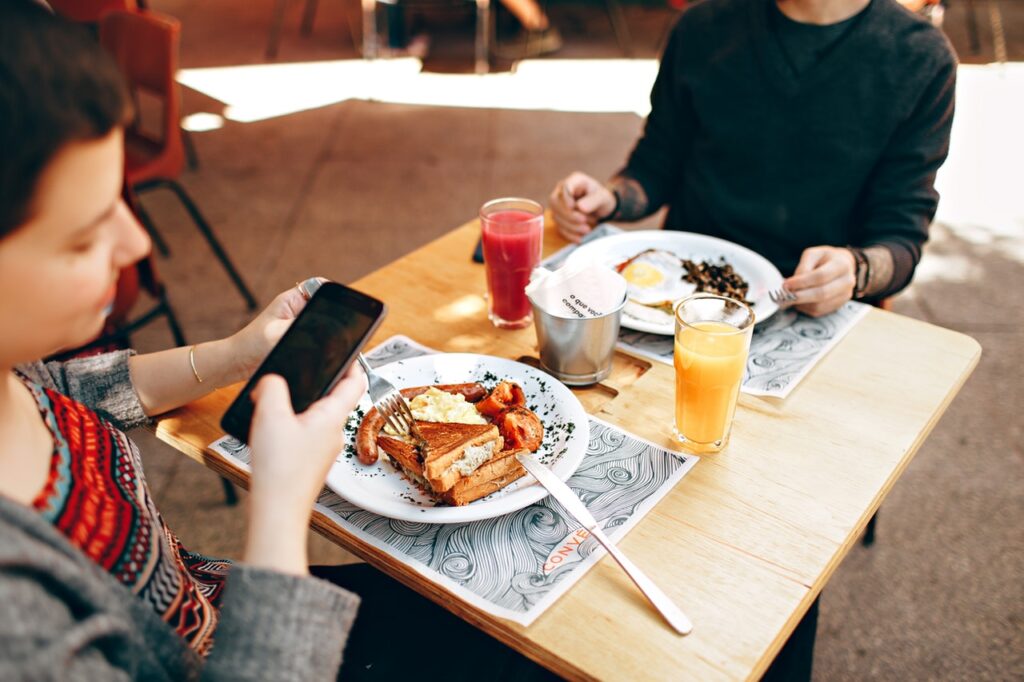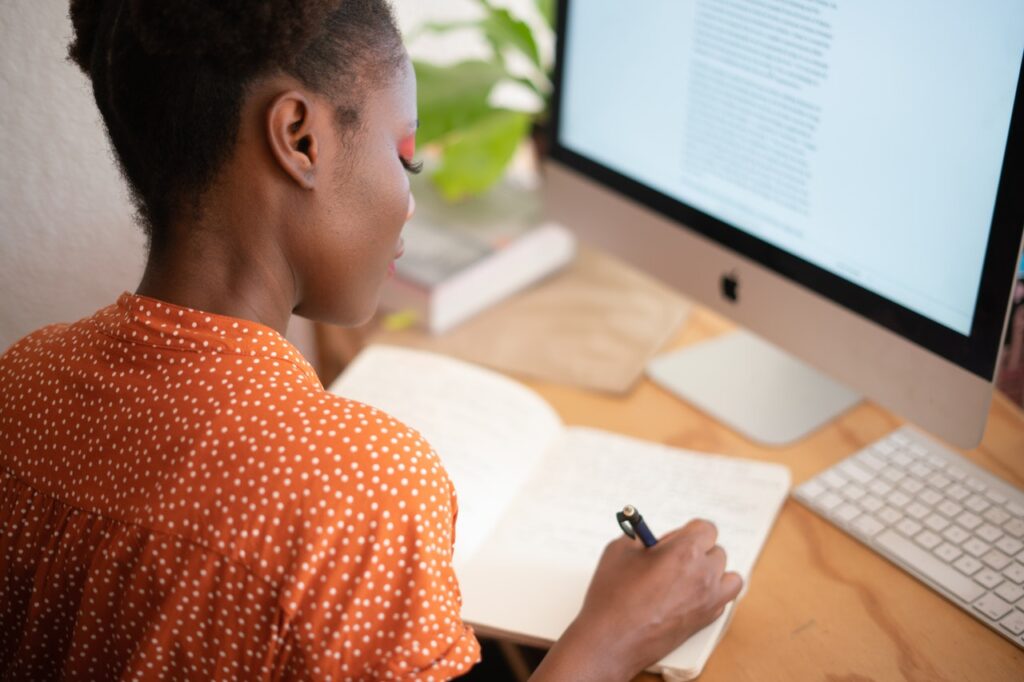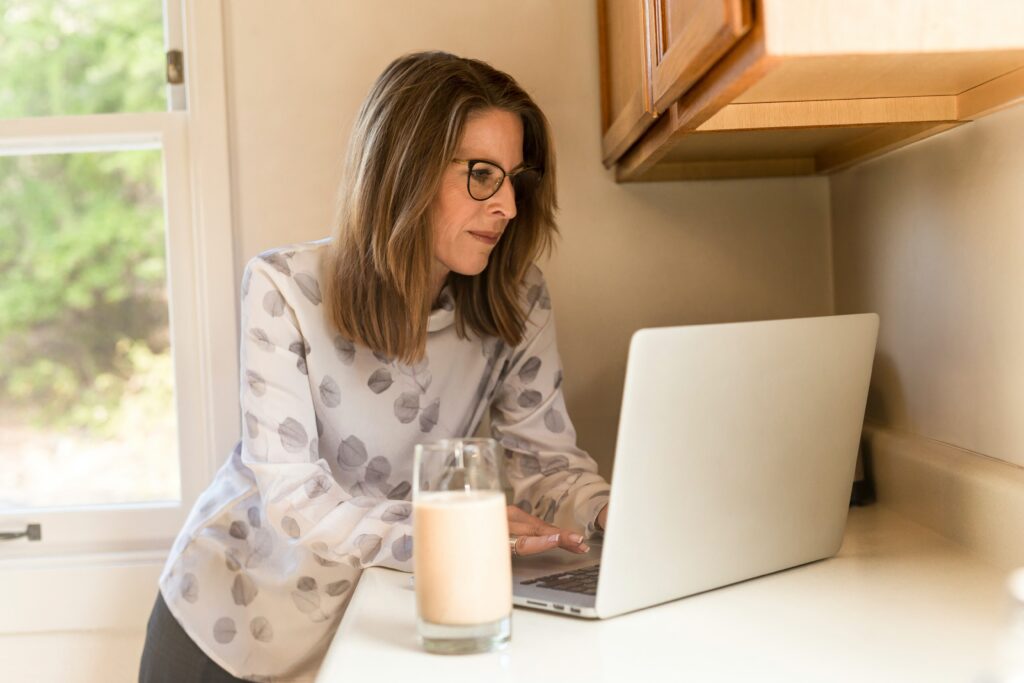
The real key to remaining sane in our hyperconnected society is implementing healthy and lasting practices around the way we use technology so that you are in control of it as opposed to the other way around. Creating a digital detox plan is critical and something I have helped clients do. Digital detox is often discussed in the media and on podcasts.
Your Personal Totally Achievable, Nine Step Guide to a Digital Detox
From watches which ping when you’ve received a new text to the Instagram feeds you can not avoid scrolling through all the time, there is no doubt that we are more connected than in the past.
Certainly, this level of connectedness has advantages. It’s simple to stay in contact with friends and family. You can express yourself on social media. Multi-tasking is easier, but additionally, there are some pretty significant disadvantages. Looking at our devices might be enjoyable in the moment, however, “pleasurable behaviours are addictive,” suggests David Greenfield, PhD, assistant clinical professor of psychiatry at the University of Connecticut School of Medicine and founder of the Centre for Internet and Technology Addiction, and they come at a price.
And due to our ever-present gadgets, studies have shown that the average American’s attention span has decreased over the past ten years from 12 seconds to a mere eight, shorter than the attention span of a goldfish.
One investigation from the American Psychological Association discovered that nearly one fifth of individuals say technology is a cause of stress. Then there are the potential physical negative effects of being “always on,” from neck pain and wrinkles to raised blood pressure.
But quitting all your screen time? It’s simply not realistic. Fortunately, experts concur that you don’t have to break up with your mobile phone completely. You simply have to relax your emotional hold on it. Here, those experts will help you to a more rational relationship with your technology.

Turn off push notifications.
Getting frequent updates on what’s taking place in the world is informative. It can also be annoying. “If you’re allowing yourself to get interrupted five times in a half an hour, you’re never actually focused in that time,” suggests Jesse Fox, PhD, head of Ohio State University’s Virtual Environment, Communication Technology, and Online Research (VECTOR) Lab. One easy fix is to switch off as many notifications as possible. One reason our devices are so appealing is that they’re attractive. Go retro, suggests Greenfield. Many smartphones now let you change the environment so the whole phone looks in gray scale.
Put away your phone during meals.
It’s a common sight at eateries; a shiny smartphone next to the bread basket. And yet, research shows that, even if we’re not checking our phone, simply having it on the table during a conversation can reduce the quality of the interaction. Our brains are just waiting for it to light up, and as a result, we are not fully present. “The more energy we direct toward our devices, the less energy we’re directing toward whoever is in the room with us,” explains Elisabeth LaMotte, a licensed clinical social worker and founder of the DC Counselling and Psychotherapy Centre.
Designate tech-free hours.
Many of us feel “naked” when we’re without our devices, but taking breaks from technology can do wonders for our well-being. “Start by designating a certain time each day that’s tech-free—like while you’re eating lunch,” says Adam Alter, PhD, a professor at NYU and author of Irresistible: The Rise of Addictive Technology and the Business of Keeping Us Hooked. “Then see how you feel after a week or so. Most people feel happy with the change, and they go on to expand it.”
Make your bedroom a no-tech zone.
“Most people use their phone for an alarm clock,” says Dr. Greenfield. But when you reach for your phone to switch it off, it’s easy to start scrolling through Twitter. In fact, it’s best if you can leave your phone outside the bedroom at night and invest in an alarm clock. Also, if you’re getting cozy with your phone in bed, it’s less likely you’re getting cozy with your partner, says Jennifer Taitz, PsyD, author of How to be Single and Happy.
Make your bed a device-free zone and invite greater opportunities for intimacy and sex. Oh, and you’ll also sleep far better. Screens’ blue lighting tricks our minds into thinking it’s daytime,making it tougher to drift off.

Rediscover paper.
If you’ve ever observed that reading a book can feel much more satisfying than reading a tablet, you’re not imagining things. Not only do books offer fewer interruptions, but research suggests that when we read on paper, our minds process abstract information more effectively. Furthermore, give some thought to acquiring your news from a newspaper, says Gretchen Rubin, bestselling writer of The Happiness Project and Better Than Before.
Limit yourself to one screen at a time.
Whenever we’re trying to work (or, say, watch The British Bake Off) and we begin scrolling through Instagram, our minds go a little haywire. “Multitasking is really bad for us,” says Fox. “If you are focusing on a task and you get distracted. For example, you write an email, but also check the news or look at a text message. It takes several minutes to recalibrate our brains back to the original task.” Make a practice of only looking at one screen at a time to improve concentration and, in some cases, pleasure.
Spring clean your social media accounts.
Facebook and Instagram help us to interact with people in unparalleled and truly satisfying ways. But analysis shows that the more time we spend on social media, the worse we truly feel. That’s not surprising, since we see only a heavily curated version of friends’ and celebrities’ lives, which can be poisonous for self confidence.
How can we stay on social while also staying healthy? Fox, who studies the effect of social media on modern society, says the key is to be more assertive about who and what you follow. “Think about what and who makes you feel bad,” she says. “And what makes you feel good.” From there, clean house and don’t be scared to block, mute, unfollow, or delete, until you’ve created a list of connections who make you laugh and smile and fill you with happiness.

Download the right apps.
Plenty of us feel addicted to our phones and for good reason. Checking our devices activates the reward circuitry in the brain, triggering the body to release a hit of the “pleasure hormone” dopamine, which is exactly what happens when we gamble, says Dr. Greenfield. It seems counterintuitive, but these apps can actually help you cut back on, well, all things digital. Use an app to track how often you use your iPhone and iPad each day and set daily limits. Other apps can let you block whatever sites distract you on your mobile device or computer, with the goal of helping you focus. Other apps allow you to selectively block calls, texts, and notifications (an iPhone’s “Do Not Disturb” setting offers a similar service).
Protect your body.
The average American spends nearly half of every day staring at a screen, and sometimes our bodies pay a price. To combat digital eye strain, which can cause dryness, blurred vision, and headaches, follow the 20-20-20 rule. For every 20 minutes you look at a screen, look up and at an object 20 feet in the distance for 20 seconds. Also, don’t forget to blink! To fix “text neck,” skip the bent neck and hold your phone higher so you can look at it straight on. And avoid “smartphone thumb”, that perma-bent texting position can cause inflammation, irritation, and pain, by taking regular breaks from your phone and mix up the way you type, using different fingers.
I hope this has given you some ideas. There are lots of other resources available and if you feel your phone usage is out of control or addictive, get in touch and see if I can help you feel less compelled or addicted to social media and phone usage.
